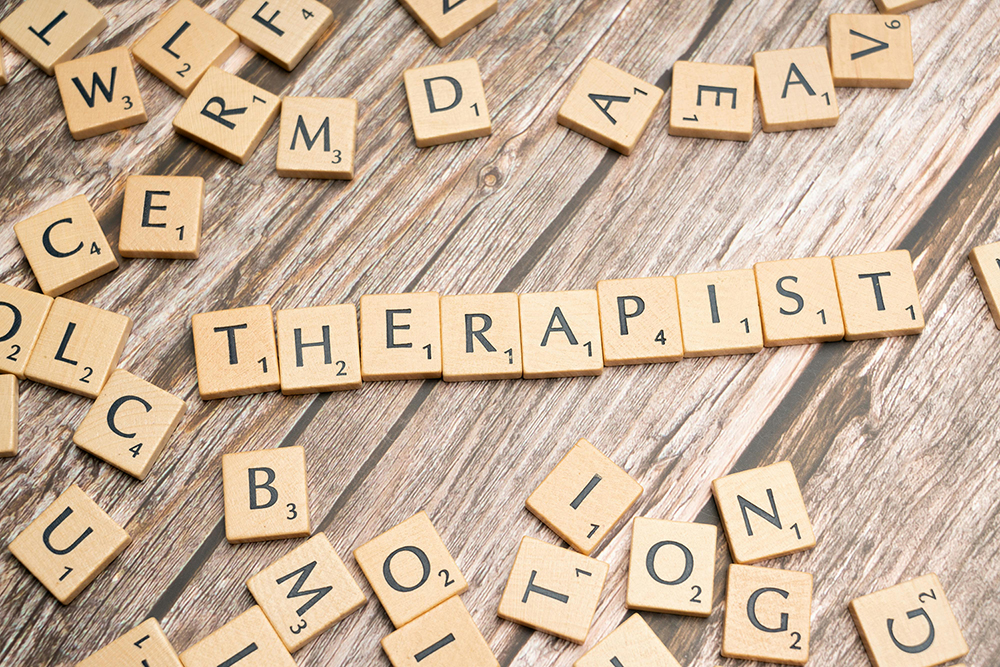
Home / Different types of therapy
Types of therapy: which one is right for you?
Written by Luisa Kos
Finding the best therapy for your needs
Are you thinking about starting therapy but feeling unsure about which type is right for you? With so many options available, it’s natural to wonder: What type of therapy will help me the most?
The truth is, therapy isn’t one-size-fits-all. Different approaches work for different people, depending on their challenges, goals, and personal preferences. Some therapies focus on thoughts and behaviours, while others explore emotions, past experiences, the body, or relationships.
In this guide, we’ll walk you through the most effective types of therapy, their benefits, and how to choose the right approach for your needs.
1. Cognitive Behavioural Therapy (CBT) – change negative thinking
Cognitive Behavioural Therapy (CBT)
Cognitive Behavioural Therapy (CBT) is one of the most widely used therapies for anxiety, depression, OCD, and stress. It focuses on identifying negative thought patterns and replacing them with healthier, more constructive ones.
Who is CBT for?
- People struggling with anxiety, panic attacks, or depression
- Those dealing with negative thinking patterns or self-doubt
- Individuals who prefer structured, practical strategies
Benefits of CBT
- Proven to reduce symptoms of anxiety and depression
- Short-term and goal-oriented
- Teaches coping strategies that can be used daily
2. Psychodynamic Therapy – Understanding the past
What is Psychodynamic Therapy?
This therapy explores how unconscious thoughts, past experiences, and childhood relationships affect your present life. It’s great for those who want deep emotional insight and long-term self-awareness.
Who is Psychodynamic Therapy for?
- People with unresolved trauma or emotional struggles
- Those experiencing relationship difficulties or recurring patterns
- Individuals interested in self-discovery and deeper emotional understanding
Benefits of Psychodynamic Therapy
- Helps identify and break harmful patterns
- Provides long-term emotional healing
- Encourages self-reflection and personal growth
3. Existential Therapy – Finding meaning and purpose
What is Existential Therapy?
Existential therapy focuses on life’s big questions, such as purpose, freedom, responsibility, and mortality. It helps people explore their values, beliefs, and what truly matters to them.
Who is Existential Therapy for?
- People struggling with identity, purpose, or existential anxiety
- Those questioning the meaning of life, career, or relationships
- Individuals experiencing grief, major life transitions, or a loss of direction
Benefits of Existential Therapy
- Helps find personal meaning and purpose
- Encourages deep self-reflection
- Supports people in making life choices with confidence
4. Person-Centred Therapy – A safe space for self-exploration
What is Person-Centred Therapy?
This approach is non-directive and client-led, meaning the therapist provides support while you explore your thoughts and feelings at your own pace.
Who is Person-Centred Therapy for?
- Those struggling with low self-esteem or self-acceptance
- People who need a safe, non-judgmental space
- Individuals looking for personal growth and empowerment
Benefits of Person-Centred Therapy
- Encourages self-acceptance and confidence
- Allows deep personal exploration
- Creates a supportive, compassionate environment
5. Relationship and Couples Therapy – Strengthening connections
What is Relationship and Couples Therapy?
Relationship therapy, including Couples Therapy, focuses on helping partners or individuals improve communication, resolve conflicts, and build stronger emotional connections.
Who is Relationship and Couples Therapy for?
- Couples experiencing communication breakdowns, trust issues, or ongoing conflict
- Individuals wanting to understand and improve their relationship patterns
- Those seeking guidance through life transitions, such as marriage, parenting, or separation
Benefits of Relationship and Couples Therapy
- Helps break negative communication cycles
- Provides tools for conflict resolution and emotional connection
- Supports healing after infidelity, betrayal, or emotional distance
6. Art Therapy – Expressing through creativity
What is Art Therapy?
Art therapy uses creative expression (painting, drawing, sculpting) to explore emotions and heal trauma. No artistic skills are required—it’s about expressing feelings in a different way.
Who is Art Therapy for?
- People who struggle to express emotions with words
- Those dealing with trauma, grief, or emotional blocks
- Individuals looking for a creative outlet for self-exploration
Benefits of Art Therapy
- Encourages self-expression and healing
- Helps process deep emotions in a non-verbal way
- Can reduce stress and anxiety
7. Somatic Therapy – Healing through the body
What is Art Therapy?
Art therapy uses creative expression (painting, drawing, sculpting) to explore emotions and heal trauma. No artistic skills are required—it’s about expressing feelings in a different way.
Who is Art Therapy for?
- People who struggle to express emotions with words
- Those dealing with trauma, grief, or emotional blocks
- Individuals looking for a creative outlet for self-exploration
Benefits of Art Therapy
- Helps release stored trauma
- Improves body awareness and emotional regulation
- Reduces stress and anxiety
8. Acceptance and Commitment Therapy (ACT) – Learning to let go
What is ACT?
ACT combines mindfulness techniques with behavioural strategies to help people accept difficult emotions instead of fighting against them.
Who is ACT for?
- People with stress, anxiety, or depression
- Those struggling with self-judgment or emotional pain
- Individuals wanting to focus on personal values and goals
Benefits of ACT
- Helps release stored trauma
- Improves body awareness and emotional regulation
- Reduces stress and anxiety
How to choose the right type of therapy
The best therapy for you depends on:
- Your specific challenges – Are you struggling with anxiety, trauma, relationships, or self-esteem?
- Your preferred approach – Do you want structured techniques (CBT), deep emotional exploration (psychodynamic), or a creative method (art therapy)?
- Your goals – Are you looking for practical coping skills, emotional healing, or body-based techniques?
Find the right therapist on The Therapist Finder
Choosing the right therapist is just as important as choosing the right therapy. On The Therapist Finder, you can:
- Browse therapist profiles to learn about their approach
- Find specialists in CBT, psychodynamic therapy, relationship counselling, EMDR, and more
- Connect with professionals who understand your needs
Start your therapy journey today.
